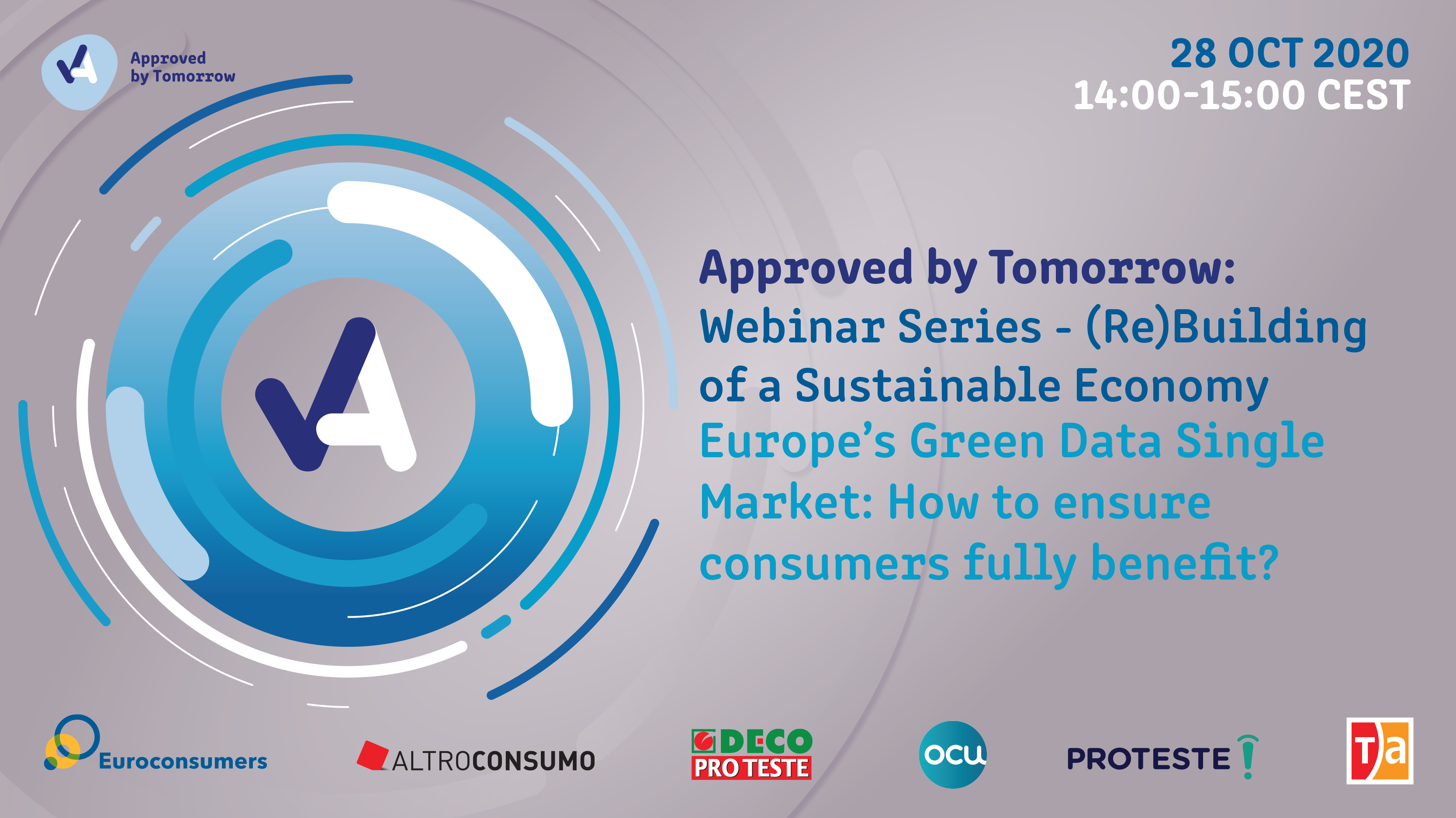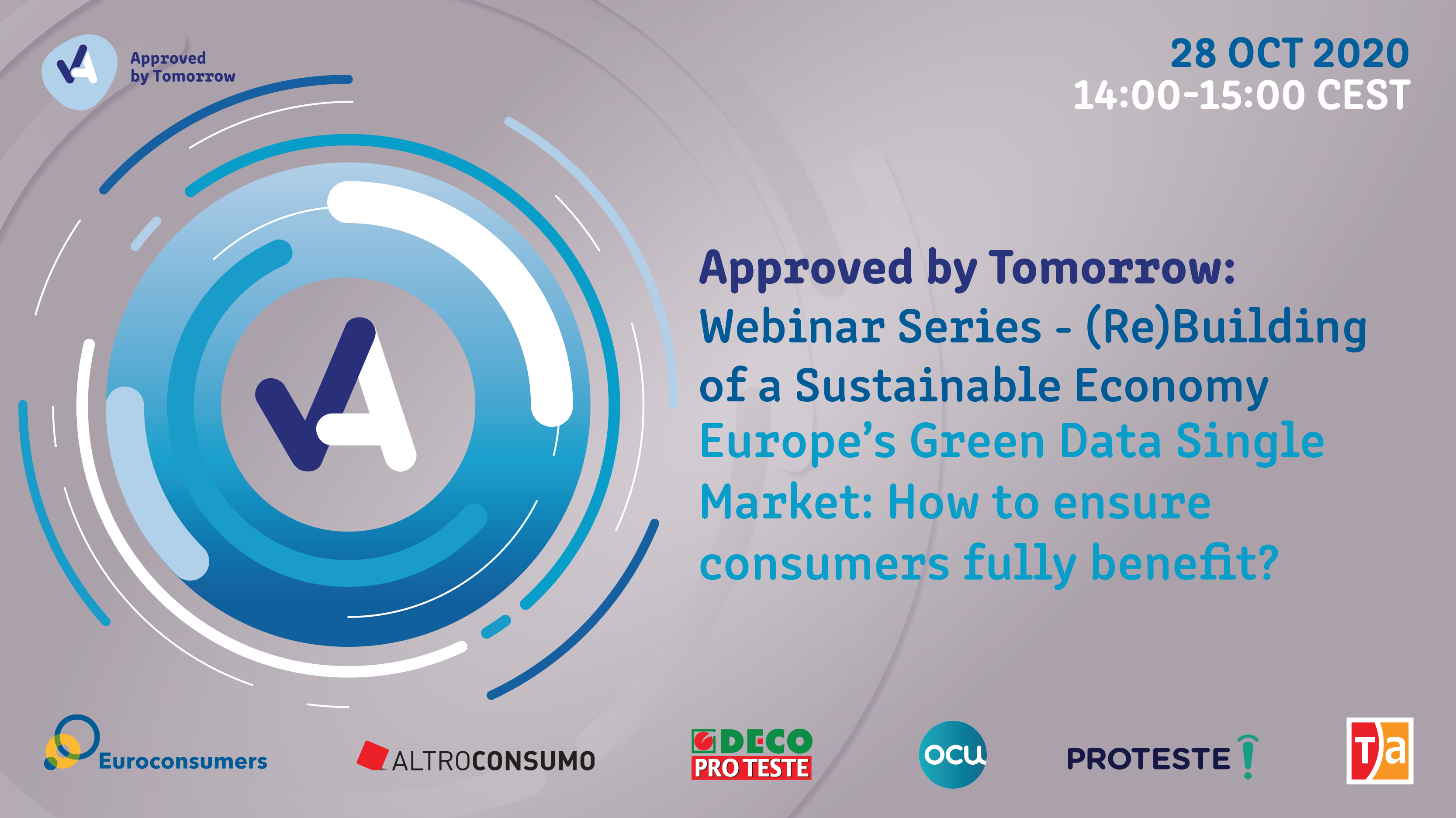This website uses cookies so that we can provide you with the best user experience possible. Cookie information is stored in your browser and performs functions such as recognising you when you return to our website and helping our team to understand which sections of the website you find most interesting and useful.
Europe’s Green Data Single Market: How to ensure consumers fully benefit?


Context
Following the launch of the European Commission’s Europe Fit for a Digital Age in February 2020, there has been much discussion on how the digital transition can help in achieving Europe’s target of climate neutrality by 2050. A significant reference point has been around the importance of data, and its role in powering the digital and green transition.
On 28 October, Euroconsumers held a webinar entitled Europe’s Green Data Single Market: How to ensure consumers fully benefit? The key points of discussion revolved around how the Data Single Market can benefit both consumers and society as a whole. Panelists also discussed the importance of a strong legislative framework and consumer trust.
Moderated by Alberto Alemanno (Professor at HEC Paris), the panelists included Kate Charlet (Director for Data Governance, Government Affairs and Public Policy, Google), Lucrezia Busa, (Member of Cabinet of EU Justice Commissioner, Didier Reynders), Sergei Lagodinsky MEP (Greens/DE, Vice-Chair of the Legal Affairs Committee), and Els Bruggeman (Head of Policy and Enforcement at Euroconsumers).
The main takeaways from the discussion were:
- Role of consumers: Panelists agreed that there cannot be a successful Green Data Single Market without consumer trust. As much as the market is an enabler for the digital transition, consumers need to know that they can trust how businesses and governments use and access their data and should be reassured that it is safe and secure. With trust from consumers, technology could really provide for their needs. Lucrezia Busa said that with improvements on privacy, data processing “ … would allow for citizens to better check their environmental footprint of the services or of the products that they are using, and choose the ones they believe to be more sustainable.”
- A green and fair market: It was agreed that as much as it is important to have a Data Single Market, it must also be open, fair and sustainable. Sergei Lagodinsky MEP argued that the Data market “ … should not be a market for the big ones”. He also stated that there has to be an understanding of CO2 emissions that come from the internet, and what can be done to improve this.
- The option to share data: Another key point that was made was that data sharing is key to ensure businesses and governments can innovate. However, it is crucial that consumers know about and agree to the processing and sharing of their data, particularly personal data. Kate Charlet argued that there is certainly room for improvement on the option to share data, however, she said that “… the industry can play a key role in promoting open and voluntary data.”
- Businesses and consumer organisation support: It was suggested by Els Bruggeman that as much as consumers have a role to play in understanding the Green Data Single Market, businesses and consumer organisations need to “… support them in their paths towards sustainability.” Els also suggested that organisations should “... step in and take some of the burden off the shoulders of consumers.” The panelists agreed that all stakeholders should work together to find solutions and ensure that data can be used to accelerate the green transition.
- IoT: Lastly, Els Bruggemann raised the idea that the market needs a clear set of EU rules on data generated by Internet-of-Things devices. Many IoT products and devices are used and owned by consumers and generate a vast amount of data. It was suggested that consumer organisations could act as third-party data brokers and safeguard the interest of consumers. This would not only protect consumers, but also ensure an open and balanced European Data Single Market.
Watch the webinar here


